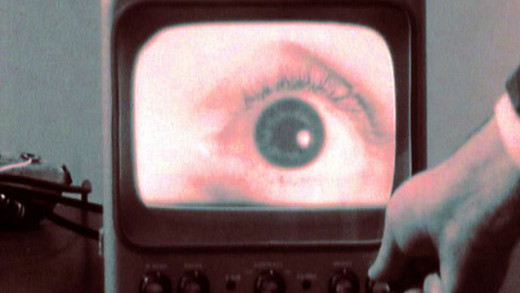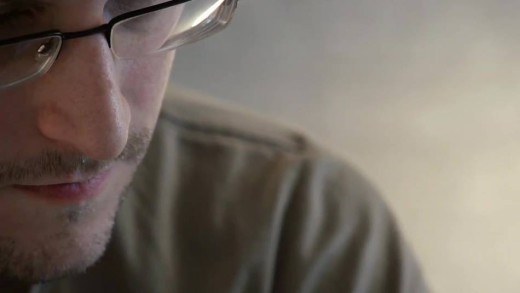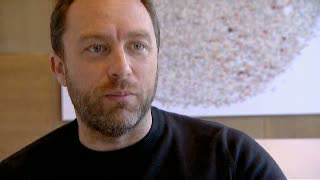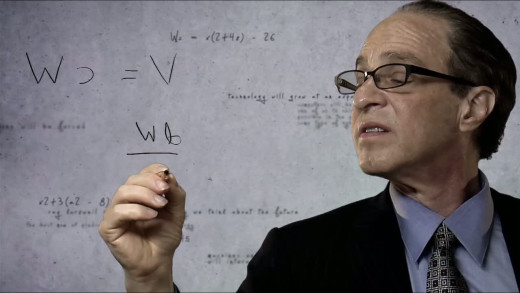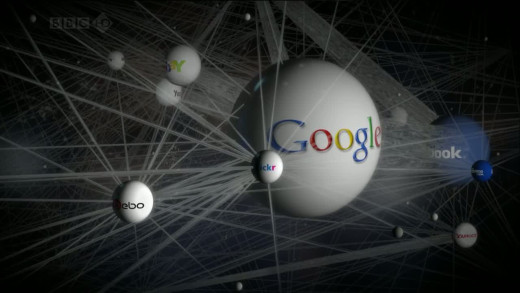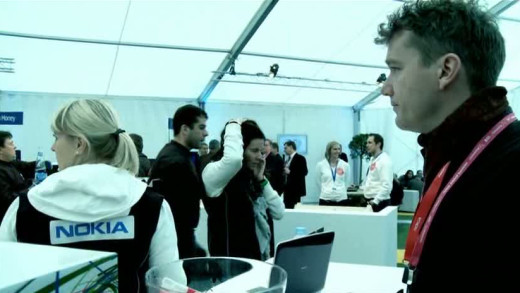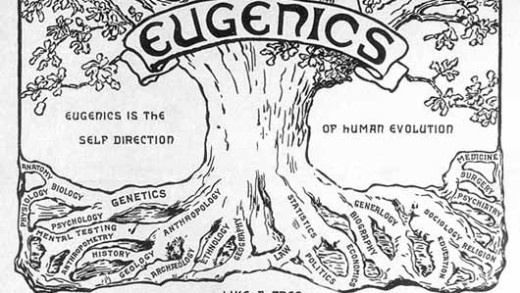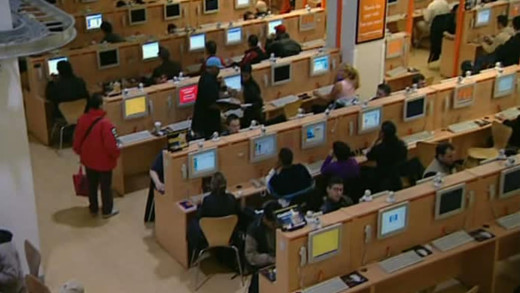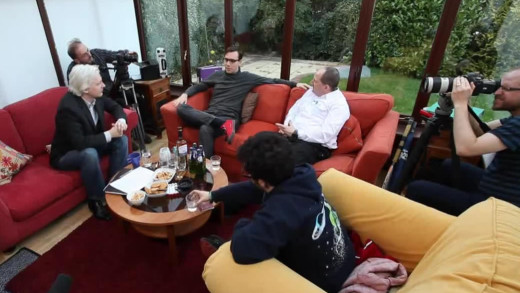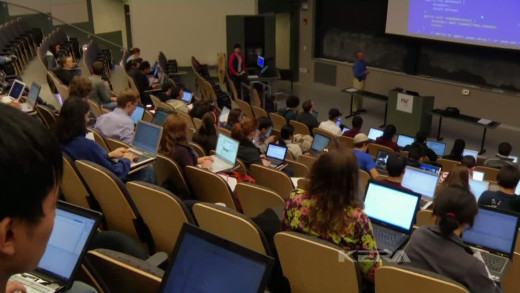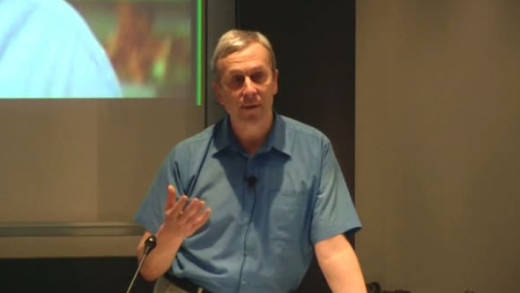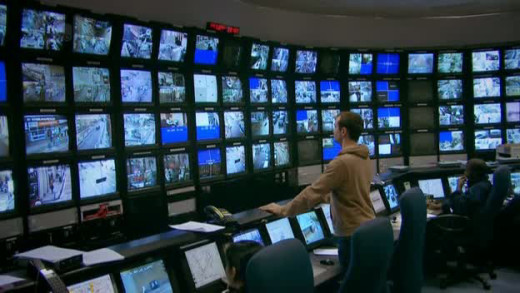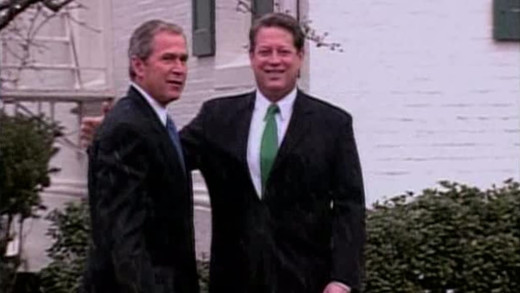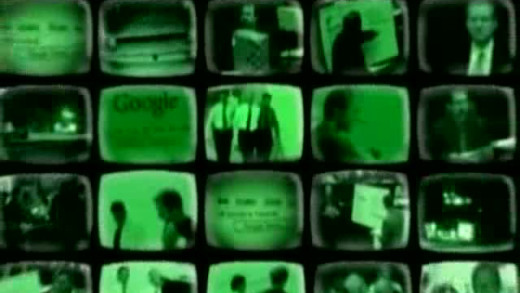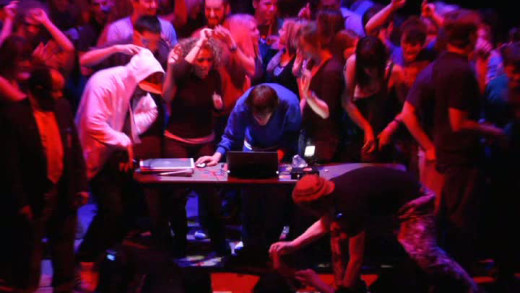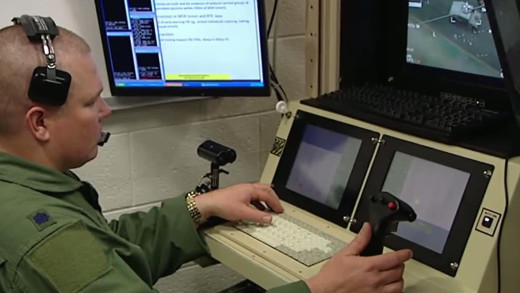All Watched Over By Machines Of Loving Grace is a series of films about how this culture itself has been colonised by the machines it has has built. The series explores and connects together some of the myriad ways in which the emergence of cybernetics—a mechanistic perspective of the natural world that particularly emerged in the 1970s along with emerging computer technologies—intersects with various historical events and visa-versa. The series variously details the interplay between the mechanistic perspective and the catastrophic consequences it has in the real world.
Citizenfour
In January 2013, film-maker Laura Poitras received an encrypted e-mail from a stranger who called himself Citizen Four. In it, he offered her inside information about illegal wiretapping practices of the NSA and other intelligence agencies. Poitras had already been working for several years on a film about mass surveillance programs in the United States, and so in June 2013, she went to Hong Kong with her camera for the first meeting with the stranger, who identified himself as Edward Snowden. She was met there by investigative journalist Glenn Greenwald and The Guardian intelligence reporter Ewen MacAskill. Several other meetings followed. Citizenfour is based on the recordings from these meetings. What follows is the largest confirmations of mass surveillance using official documents themselves, the world has never seen...
Google or Wikipedia? Those of us who search online are getting referred more and more to Wikipedia. For the past two years, this free online “encyclopaedia of the people” has been topping the lists of the world’s most popular websites. But do we really know what we’re using? The Truth According To Wikipedia plunges into the story behind Wikipedia and explores the powerful world of ‘Web 2.0’ -- Is it a revolution, or pure hype?
Ray Kurzweil, noted inventor and futurist, is a man who refuses to accept physical reality and the inevitability of death. Instead, he claims that the trending exponential increase in the growth of information technology can continue indefinitely, and that a so-called "singularity" will emerage—a point where humans and machines will converge, allowing one to "transcend" biological "limitations." But there are many who share deep concerns about the consequences of working towards Kurzweil's world...
20 years on from the invention of the World Wide Web, The Virtual Revolution explores how the Internet is reshaping almost every aspect of our lives. But what is really going on behind this reshaping? The inventor of the Web, Tim Berners-Lee, believed his invention would remain an open frontier that nobody could own, and that it would take power from the few and give it to the many. So how do these utopian claims stand up to today?
Neuroscientist Professor Susan Greenfield says today's developing brain is being worryingly reshaped by excessive visual stimulation -- the effect of a culture driven by screens. Biotechnology, nanotechnology, even the internet are all impacting on our brains and could be heralding future generations with different abilities, agendas and even ways of thinking. Her prediction is that we might be standing on the brink of a cataclysmic mind-makeover never before seen...
Modern society loves mobile phones -- the selection between different models and gadgets has never been bigger. But the production of this technology has a hidden, dark, bloody side. The main minerals used to produce mobile phones are coming from the mines in the Eastern DR Congo. The Western World is buying these minerals up at a furious rate, financing a bloody civil war which, during the last 15 years, has cost the lives of more than 5 million people. Blood In The Mobile explains the connections between mobile phones and the civil war in the Congo, while technology corporations whitewash the issue to "supply and demand" and claim ignorance...
Transhumanists claim a beautiful and apparently now-not-so-distant utopian future made possible by artificial intelligence, life extension and cybernetic technologies. But upon examining the convergence of these technologies and the history behind them, Age Of Transitions details how this movement of "transcending human limits" was born out of pseudo-science eugenics, and what the implications are for a world divided by the have's and have-not's.
The Intelligence Revolution is an extolling and largely non-critical account by advocate Michio Kaku who unflinchingly explains how artificial intelligence will "revolutionise homes, workplaces and lifestyles," and how virtual worlds will apparently become "so realistic" that they will "rival" the real physical world. Robots with "human-level intelligence" may finally become a reality according to Kaku, and in the ultimate stage of scientific mastery, the era of control imperative and domination, this culture will seek to merge human minds with so-called machine intelligence. Also, for the first time, we see how a severely depressed person can be turned into a happy person at the push of a button—all thanks to the convergence of neuroscience and microtechnology. What's wrong with such developments? And the larger culture such that technologies like this are being developed in the first place? How do such prospects impact the real physical world and the real physical lives of all of us?
Subconscious War is a video essay exploring the influences of media and the culture of violence on reality, and the cultivation of collective values in society. The film contrasts the writings of Aldous Huxley and Neil Postman's grim assessments; relating the concepts of works such as 'Brave New World' and 'Amusing Ourselves to Death' to the current cultural influences that foster today--corporate media and indeed media saturation, video games, television, and a pervasive technoculture, for example. What is being created? And what sort of people are being cultivated by this culture? Who benefits?
Panopticon
Using the analogy of a Panopticon, this film looks at how technology and the convergence of vast data stores together are fuelling one of the most comprehensive attacks on privacy ever before seen. How is modern society being defined by such rapid changes? Where are we heading? By travelling to Germany to show how such attacks have been the basis for past dictatorships, Panopticon asks: Even if you have nothing to hide, do you have nothing to fear? What does privacy mean for you? When precisely does the surveillance state begin? What is your threshold? With a focus on the Netherlands, Panopticon offers a comprehensive analysis challenging the current herd-mentality and apathy about privacy in the modern world.
The Net explores the back-story of Ted Kaczynski (the infamous 'Unabomber') as a prism to the often unexamined side of the history of the Internet. The film combines travelogue and investigative journalism to trace contrasting counter-cultural responses to the so-called 'cybernetic' revolution of the 1970s. For some whom resist the pervasive systems of digital technology, the Unabomber can come to symbolise an ultimate figure of refusal. But for those that embrace the technologies, as did and do the champions of so-called 'media art', such as Marshall McLuhan, Nam June Paik and Stewart Brand, the promises of worldwide networking and instantaneous communication outweigh any and all of the concerns. The Net links these multiple nodes of cultural and political history, analogous to the Internet itself. Circling through themes of utopianism, anarchism, terrorism, the CIA, LSD, MKULTRA, Timothy Leary, Ken Kesey and the Merry Pranksters, The Net exposes the conspiracies and upheavals, secrets and cover-ups as part of the forgotten subversive history of the Internet.
Cypherpunks is a movement originating from the 1980s aiming to improve Internet privacy and security through proactive use of cryptography. With WikiLeaks being a recent offshoot of the many projects derived from the Cypherpunk movement, WikiLeaks editor Julian Assange talks with three activists from the Cyberpunk world to cover the topics of mass surveillance and social control being tied directly into technology as modern society progressively intertwines with technological progress...
Within a single generation, digital media, the Internet and the World Wide Web have transformed virtually every aspect of modern culture, from the way we learn and work to the ways in which we socialise and even conduct war. But is technology moving faster than we can adapt to it? Is our constantly-wired-world causing us to lose as much as we’ve apparently gained? In Digital Nation, Douglas Rushkoff and Rachel Dretzin explore what it means to be human in a 21st-century digital world...
September 11 has indelibly altered the world in ways that people are now starting to earnestly question: not only perpetual orange alerts, barricades and body frisks at the airport, but greater government scrutiny of people's records and electronic surveillance of their communications. The US National Security Agency (NSA) has engaged in wiretapping and the sifting of Internet communications of millions of people worldwide, including their own...
Nerds 2.0.1: A Brief History of the Internet is a documentary series written and hosted by Mark Stephens under the pseudonym Robert X. Cringely as a sequel to Triumph of the Nerds. The series follows on by documenting the development of ARPANET, the Internet, the World Wide Web and the resulting dot-com bubble of the mid and late 1990s...
Admit it--you don't really read the endless pages of terms and conditions connected to every website you visit or phone call that you make do you? Of course not. But every day billion-dollar corporations are learning more about your interests, your friends and family, your finances, and your secrets--precisely because of this; and are not only selling the information to the highest bidder, but freely sharing it with the government. And you agreed to all of it. With plenty of recent real-world examples, Terms And Conditions May Apply covers just a little of what governments and corporations are legally taking from Internet users every day--turning the future of both privacy and civil liberties into serious question. From whistleblowers and investigative journalists to zombie fan clubs and Egyptian dissidents, this film demonstrates how all of us online have incrementally opted-in to a real-time surveillance state, click by click.
Kevin Warwick is a renowned researcher in the precarious field of cybernetics, the study of 'artificial intelligence,' human-control functions, robotics and so-called "cybernetic organisms." His work, as self presented here, shows how implant and electrode technology can be used to control human brain functions, to create biological brains for robots, to enable so-called "human enhancement" and treatment for neurological illnesses. The end goal is transcending human "limitations" or transhumanism, according to Warwick, which inevitably stirs up many social, ethical and practical questions. What are the implications of this work, and this world view?
Film maker David Bond lives in one of the most intrusive surveillance states in the world -- Britain. When David receives a letter stating that both he and his daughter are amongst the 25 million residents whose details have been lost by the government in a massive data breach, David sets out to investigate some potential impacts of such data being lost in a society of mass surveillance. Erasing David documents the test where David hires two private detectives to track him down as he chooses to 'disappear' for 30 days to see if he can avoid being caught amongst the vast data trails generated by modern society...
Blood Coltan travels to eastern Congo, where a bloody war is happening over a precious metal called Coltan—a raw material used in electronic devices such as computers, televisions and mobile phones. The demand for Coltan is driven by the west, funding the war in Congo between rebel militias and children as young as ten who work the mines hunting for this precious material of the technocratic age...
Filmed over three years, Hacking Democracy documents a group of American citizens investigating anomalies and irregularities with the electronic voting systems used during the 2000 and 2004 US Presidential elections. The investigation revolves around the flawed integrity and security of the machines, particularly those made by the Diebold corporation. Could the elections have been rigged?
Every day, escalating technologies are being used to monitor all of us as populations with unprecedented scrutiny—from driving habits to workplace surveillance, as shoppers, as consumers, as citizens. We are all increasingly being observed and analysed. Internet searches are monitored and used as evidence in court, the police track our movements on the road, governments collect our DNA, fingerprints and iris scans, corporations assemble huge databases for profiling and selling data, while governments collude with such lucrative businesses—for example, Acxiom, Lexis Nexis and ChoicePoint—to gain access to vast volumes of information about people and the machinations of modern society. What will it take for us to stop this system before it boils over into a full-blown technocratic authoritarian regime?
The Quantum Revolution spouts claims of turning many ideas of science fiction into science fact—from materials with mind-boggling properties like invisibility through to so-called "limitless quantum energy" and room temperature superconductors, to a space elevator for tourism. Are such developments worthwhile, sustainable, equitable or even necessary? Scientists forecast that in the latter half of the century everybody will have a personal matter fabricator that "re-arranges molecules to produce everything from almost anything." Yet how will those in power ultimately use the domination of matter and life on Earth? How is science already doing this and to what ends? What are the unasked questions about science itself and the desire to control the very fabric of the universe? What insanity are we up against?
Nanotechnology has the potential to create many new materials and devices with a vast range of applications -- such as in medicine, electronics or energy production for example. On the other hand, nanotechnology raises many of the same issues as with any introduction of new technology, including concerns about toxicity and the impact on the environment. The difference in this case being that nanomaterials are in use in products and industry right now and these concerns are seemingly going unaddressed...
Film-maker Brett Gaylor explores the issues of copyright in the information age, mashing up the media landscape of the 20th century and shattering the wall between users and producers. The film's central protagonist is Girl Talk—a mash-up musician topping the charts with his sample-based songs. But is Girl Talk a paragon of people power or the Pied Piper of piracy?
As high-technology permeates further into the industrialised world, manufacturers will go to any lengths to get the raw materials to make their gadgets. Coltan from the Congo is one such rare ingredient. Few in the west know where their gadgets come from and that in the middle of Africa much human suffering is created in the pursuit of "technological advancement"...
For Your Eyes Only? reports on the existence of a secret government program that intercepts millions of e-mails each day in the name of 'terrorist surveillance'. News about the program came to light when a former AT&T employee, Mark Klein, blew the whistle on a large-scale installation of secret Internet monitoring equipment deep inside AT&T's San Francisco office. The equipment was installed at the request of the United States government to spy on all e-mail traffic across the entire Internet. Though the government and AT&T refuse to address the issue directly, Klein backs up his charges with internal company documents and personal photos...
The latest in the string of controversies as part of the United States' ongoing "war on terror", is the military's growing reliance on "Unmanned Aerial Vehicles" otherwise known as 'drones', evidenced by the international reaction to recent drone missile attacks along the border in Pakistan. The military is also deploying other technological advancements alongside, such as robots in the battlefield and drones that work in swarms. Is this just a big computer game? A new tech-driven arms race? It doesn't end there though -- drones are now creeping into use by police and the intelligence services as a surveillance tool, and even into commercial and civilian use...
